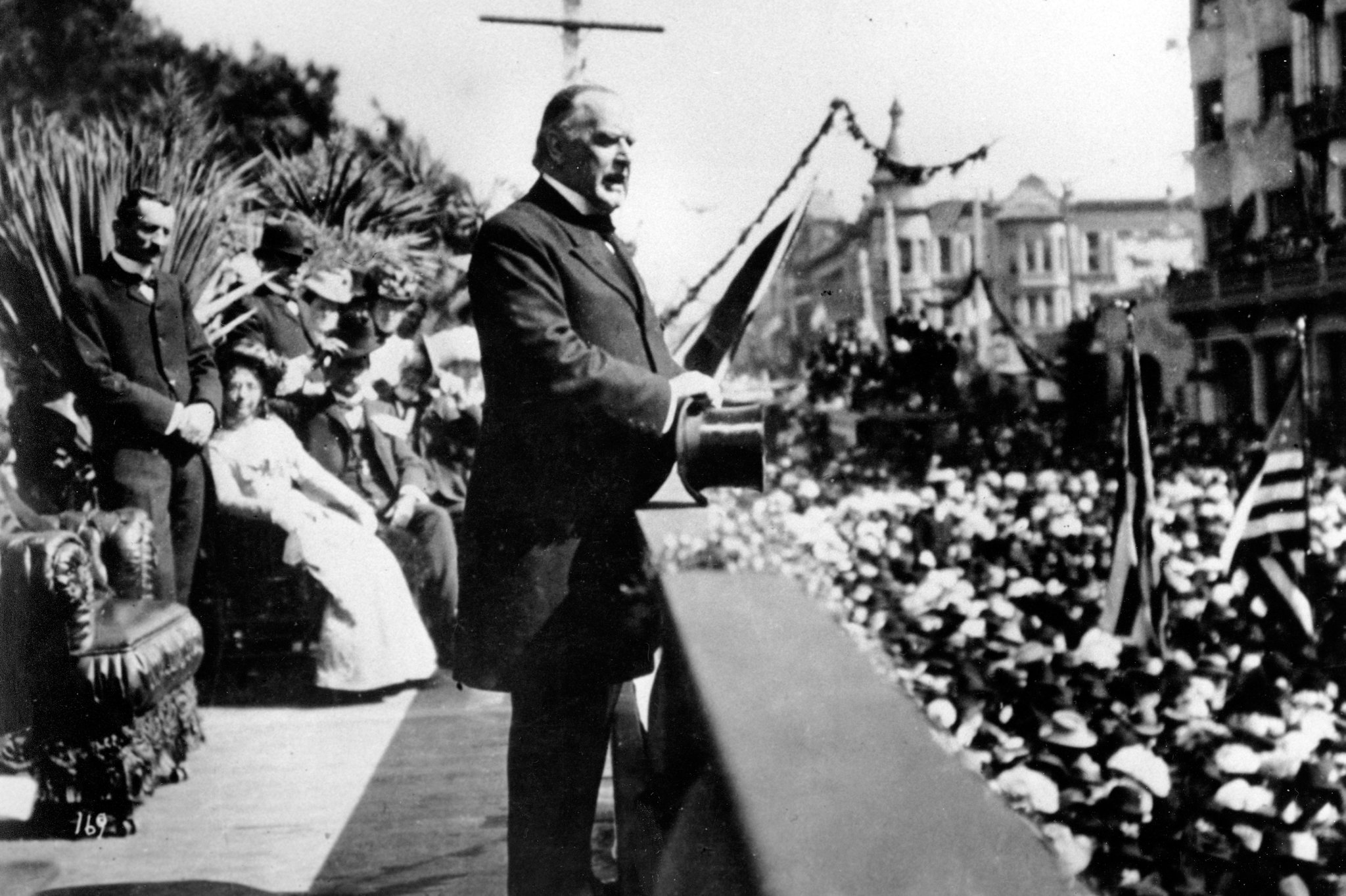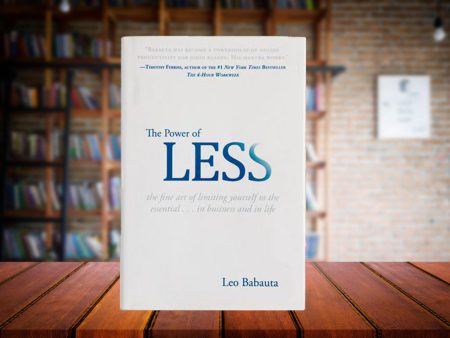Perhaps this is one of the most important desires of every person, to be popular among others. If you feel that your relationships with others need to be repaired and you need to improve your social personality, let’s take a rapid look at a book that, although it was published in 1936, is still alive and is one of the best.
Dale Carnegie wrote this book when he was 48 years old, when he had seen many things in his life that he could pass on to others.The general premise of this book is that you can change and even control the behavior of others towards you by behaving correctly and being polite. As a very wise man said many years ago:
Politeness is to human nature what warmth is to wax
Arthur Schopenhauer
But what exactly is being polite and personable? How to adjust the strategy of dealing with people? This is what we are going to learn from Carnegie today.

Dale Carnegie
Dale Carnegie was an American writer and lecturer, and the developer of courses in self-improvement, salesmanship, corporate training, public speaking, and interpersonal skills. Born into poverty on a farm in Missouri, he was the author of “How to Win Friends and Influence People”, “How to Stop Worrying and Start Living” and many other useful books which are still being reprinted and sold after decades.
Criticizing others destroys friendship
Bob Hoover, the famous pilot, was returning from an air show in San Diego when suddenly both his engines stopped. With extraordinary techniques, he was able to land the plane and save the lives of the passengers, but his plane was badly damaged.
The reason for the horrific engine shutdown was that the fuel officer had mistakenly filled the World War II propeller plane with jet fuel. After returning to the airport, Hoover went to the mechanic who had made this mistake. The young man was crying profusely, thinking how angry Hoover must be because of the loss of his expensive plane and the danger that threatened the lives of three passengers.
How do you think Hoover reacted? Did he yell at him? Did he criticize him? He cursed and threatened to sue?
not at all. Instead, Hoover said that because he wanted to make sure he learned from the incident, he preferred to have the same young man prepare the next day’s plane.
Perhaps the reason for Hoover’s forgiveness was that he knew something that B. F. Skinner, a famous psychologist, discovered a long time ago:
animals that are rewarded for good behavior learn better than animals that are punished for bad behavior
The same thing applies to people. Criticizing people does not encourage them to change their behavior, because fleeting emotions are their first trigger and they do not have a valid reason for their initial reaction; Therefore, the person you are criticizing is not really listening to you. They just feel attacked and reciprocating aggressive behavior is their most natural reaction.
So while criticizing others may help you express your anger, in the long run it will make them less interested in you.

Many successful people have developed the habit of never directly criticizing others. For example, Benjamin Franklin claimed that the secret of his success is “not speaking ill of others”.
Abraham Lincoln also learned this lesson very well. He used to criticize his opponents in front of others, until one day his criticism hurt someone so much that he invited him to a sword duel! They called off the duel at the last moment, and after that Lincoln stopped openly criticizing others. Even during the American Civil War, he famously said something to people who spoke very badly about Southerners:
Don’t criticize them; They are just what we would be under similar circumstances
It’s easy to criticize others, but you need to have a great personality to understand people and forgive them for their mistakes and shortcomings.
So, if you want others to love you, think about their actions, accept their shortcomings, and make it a rule never to directly criticize anyone.
To get others to do what you want, appreciate them and make them feel important
Carnegie says that one of the strongest drivers of human behavior is his desire to be admired by others. We all like to hear compliments from others and tell us that our work is great.
Some even claim that human interest in importance is the foundation of civilization. Our desire for approval and encouragement drives us to climb the highest mountains, write amazing novels, and found multi-million dollar companies. There is no one who does not like to be important and to be approved.
But to show your appreciation to someone, you don’t need to call him by a special and attractive title. It is enough to use simple expressions such as “thank you” and “sorry” and truly and sincerely appreciate him.
Do not flatter at all, because people will immediately understand what you mean. Instead, stop thinking about yourself for a moment and focus on the other person’s positive qualities.
Also, make the other person feel important. Think about this word from one of the best minds in history:
In my walks, every man I meet is my superior in some way, and in that I learn from him
Ralph Waldo Emerson
So you can always learn something from others and appreciate their special qualities. Keep this in your mind:
Golden Rule
So the next time you see a tired, bored, and neglected service worker, try making their day with a little appreciation. For example, Dale Carnegie once wanted to cheer up a tired postal worker and told him: “I wish I had thick hair like yours”. Because of this unexpected compliment, suddenly a light of happiness appeared on the employee’s face and they had a pleasant conversation.
If you use small compliments like this in your conversations, you will be surprised by the positive reaction of people; Because you have fed their need and interest to be known. In this case, you will soon become a person that others like and enjoy working with. Best of all, you leave a positive impact on the lives of those around you.

Be a good listener who is genuinely interested in others
Once Dale Carnegie attended a dinner party in New York where he met a botanist. Having never seen botany up close before, he listened for hours and was amazed by his explanations of exotic plants and experiments on them. Later, the botanist told the host that Dale Carnegie was “a fascinating conversationalist”.
But the point is that Carnegie hardly spoke a word and was just a good and interested listener. So it can be concluded that one of the secrets of making others interested in you is to show interest in them.
We all love good listeners, especially when they encourage us to talk about ourselves. But why?
The New York Telephone Company conducted a study on the most frequently used words in telephone conversations. Can you guess which word came in first place?
“I…“
People always like to talk about themselves. That’s why we are happy when we meet someone who also likes to hear about us.
If you want to be more likeable and attractive to others, talk less and listen more. Ask others about themselves and encourage them to talk about themselves in detail.
On the contrary, most people are thinking so much about what to say next that they almost don’t listen to what the other person has to say. Real listening means that you consciously try to give all your attention to the other person. The benefits of this are many.
For example, Sigmund Freud was famous for his listening skills. He was a master at showing others that what they had to say was very interesting to him, and as a result, they felt comfortable sharing even their most private feelings and experiences with him.
On the other hand, if you talk too much about yourself, don’t listen to others and keep interrupting them, you will immediately lose popularity because this behavior is a sign of selfishness.
So practice listening. Ask the other person about their successes so they can talk about something they are really passionate about. Then you will be surprised by the deep connection between you.

Talk to others about things that matter to them
Do you like chocolate?
You probably do. But if you were to go fishing, would you put chocolate on your hook instead of bait? of course not. Because it’s not about what you like in fishing, it’s about what the fish likes.
Likewise, if you want someone to do something for you, it’s better to look at it from their point of view and see how you can get them to do it. For example, once Dale Carnegie had booked a hotel conference hall for twenty lectures, when he was suddenly informed that the cost of renting the hall had tripled.
Knowing that he should also pay attention to the wishes of the hotel manager, he wrote a letter to him and pointed out the profits and losses that the hotel will suffer with this price increase.
For example, he said: “With this price increase, the conference hall will be empty for other events, because I cannot afford to pay this price; But on the other hand, you’ll lose the free publicity you get from my lectures”.
As a result of this letter, the hotel revised its plan and increased the price by only 50%.
One day a man named Edward L. Chalif needed help. He was going to take the youth scout convention to Europe and wanted to ask the head of one of the largest American companies to pay for one of the participants.
Chalif had heard before the meeting with the boss that he had a blank check signed for several million dollars and he was very proud of it. He went to meet the boss with this information, but instead of making his request, he asked him about the check: “Is it true that you have such a check? Can I see it?”
And he was happy to be able to tell the young scouts that he had seen a million dollar check up close. The head of the company happily confirmed his question and told him the story of the check. Then, when Chalif told the chief about the purpose of the meeting, he immediately agreed to bear not only the travel expenses of 1 person but also the travel expenses of 5 people and personally come to Paris and show the young scouts all over the city.
As you can see, people love people who talk about their interests, whether it’s their job, their hobbies, or their million dollar check.
Another example is about Theodore Roosevelt; Whenever he was going to meet someone new, he would read about all his interests and then go to the meeting. He realized that the only way to be liked by others is to talk about things that are valuable to them.
But if you don’t know the interests of the other person, remember that everyone is interested in one thing: themselves. Benjamin Disraeli, one of the former prime ministers of Great Britain, said:
Talk to people about themselves and they will listen to you for hours
Not every argument is worth winning
Once a man attended Dale Carnegie’s classes. He was a salesman for the White truck manufacturing company and had a tendency to argue a lot. In addition, he really liked fighting. If a customer insulted the trucks, he would immediately fight back and win the argument with satisfaction, but the thing was, despite these “apparent victories”, the customers never bought his trucks.
As you can see, arguing with the other person is pointless. If you lose, you’ve lost the whole argument, and if you win, the other person will hate you for hurting their pride. As a result, you have not really won.
Nine times out of ten arguments cause the other person to insist more on their positions. Therefore, the only solution is to prevent such discussions from starting.

So, the next time someone disagrees with your ideas, don’t follow up and start an argument, but accept their opposition as a positive point that opens up a new perspective in front of you. In general, if two people always agree, one of them definitely does not speak his mind and has given up expressing his opinion.
Also, always distrust the first reaction that comes to you, because it is usually an instinctive defensive reaction and has no validity. Whatever you do, just control your anger.
Listen to what the other person has to say without resistance or protest, and promise to look into it immediately. Try to find common ground and talk about it, and at the same time, if you made a mistake, admit it. By doing this, you reduce the defensiveness of the other person.
Then thank the opposite person. However, you can consider him as a friend who cares a lot about the issue and wants to help you reach the right result.
Finally, suggest that you meet again later and both of you think more about the matter in the meantime. At this point, ask yourself whether the right is against the opposite side and whether your type of reaction will lead you to the desired result or not.
By following these tips, you can avoid unnecessary discussions.
Even the truck salesman learned to avoid unnecessary arguments, and the next time a customer told him he preferred another brand of truck, he just agreed. Interestingly, his behavior made it difficult to argue with for the customer, so their conversation turned to the benefits of White trucks. As a result of this change of attitude, he later became a brilliant salesman of White truck brand.
Never blame others for their mistakes because they will hate you
When Benjamin Franklin was a young man, he was known for his self-righteousness and verbal attacks on all his opponents. Once a friend pulled him aside and said that all his friends are going to leave him because of this behavior.
Despite his youthful recklessness and pride, Franklin was smart enough to listen to his friend and develop the habit of never openly contradicting others. He also decided to remove words like “definitely” and “no doubt” from his vocabulary because he thought they were too harsh and showed the inflexibility of the speaker. Instead, he used phrases like: “I am convinced that…” or “I imagine that…”.
As you can see, when you tell someone they are thinking wrong, you are implicitly telling them, “I am smarter than you.” This is a direct attack on their self-esteem and they will definitely try to retaliate because you have clearly disrespected them.
So whenever you want to express your disagreement with someone’s opinion, take a lesson from Benjamin Franklin and avoid definite and inflexible phrases like “It is clear that…” or “Certainly the problem is that…”.
Such phrases convey the message to people that “I am smarter than you.” Even if you think you are smarter than the other person, you should never reveal this thought.
If you want the other person to reconsider their thoughts, you will be more successful with a humble and intellectual demeanor. For example, you can say, “I thought differently, but maybe I was wrong. I’m often wrong, so let’s go over it again together”.
If you express your opposition in this way, it is much less likely that the other person will not give you the opportunity to express your opinion, resist your words or hate you. If you’re lucky, a gentle demeanor can turn naysayers into allies very quickly, and you can change their minds.
Whenever you make a mistake, admit it immediately
One day, Dale Carnegie took his dog Rex for a walk in the green area near his house. Rex liked to run free, so Dale didn’t wear a collar or muzzle. Unfortunately, a policeman suddenly appears on their way and firmly tells Dale that what he is doing is illegal, but just once he allows him to take his dog and leave without paying a fine.
Dale obeyed, but Rex didn’t like the muzzle, so after a while Dale removed the collar and muzzle again. The same policeman appeared in front of them again. This time, before the police could even say anything, Dale said he was very, very ashamed and knew his misconduct was unforgivable.
Naturally, the police should have been angry and handed him a fine, but because of his honest confession of his crime, he behaved otherwise, saying, “I know this little dog won’t hurt anybody.” Then he accepted Carnegie’s apology and let him and his dog walk on their beloved path.
The truth is, we all make mistakes. Whenever you make a mistake and someone wants to blame you for it, there is one way to calm the storm of their anger: to admit your mistake.

This method helps a lot, because the other person has definitely decided to boost their self-esteem by criticizing your mistake, but when you admit your mistake, the situation changes completely. Now he is no longer attacking you to feel superior, but it is time to show his generosity by forgiving you. This is exactly the reason why the police tolerated Dale and his dog.
So the next time you realize you made a mistake, be brave enough to admit it. By doing this, you will get a better result and you will see that this work is better than defending yourself against the blame of the other person.
To convince others, start a friendly conversation and get as many “yes” answers as you can
More than a century ago, John D. Rockefeller Jr. was one of the most hated men in Colorado. The miners of Colorado Fuel and Iron Company, which was controlled by Rockefeller, had been on strike for two years for more wages, but the result of their action was very sad, many soldiers came to the mine and shot them.
So when Rockefeller had to talk to the representatives of the strikers, he was in a weak position against the people who wanted to execute him until a few days ago.
He chose a simple strategy: “Going in as a friend”.
He told the delegates how happy and proud he was to see them and that it was one of the most important days of his life. He also called them dear friends with whom he has common interests.
What was the result?
The miners went back to work without another word about the overtime they had fought so furiously for.
This example shows that friendly behavior can change people’s opinion much more than violence and fighting, so whenever you want to achieve something, be friendly.
Another important technique for persuading people is to get them to agree and get a “yes” from the beginning.
First, emphasize the points about which you agree with the other person and ask him questions whose answers must be positive. After all these positive answers, it becomes difficult for them to disagree with you. On the other hand, you should not allow the other party to express a negative answer, because if he gives such an answer, he will no longer have the desire to change it and shorten his position.

For sellers, hearing more positive responses leads to more sales.
Pay attention to the story of Eddie Snow, who sponsored some of Dale Carnegie’s classes.
Mr. Snow wanted to rent a bow and arrow from a hunting equipment store, but the salesman said that was not possible, but he tried to get some positive answers from him.
Salesman: “Have you rented a bow before?”
Mr. Snow: “Yes.”
Salesman: “Probably paid $25-$30 for it?”
Mr. Snow: “Yes.”
Salesman: “We have a $35 model shooting set for sale. So you can buy a set for yourself by paying $5 more than the rental price so you don’t have to rent anymore. Isn’t it more logical?”
Mr. Snow: “Yes.”
Mr. Snow not only bought that bow and arrow set, but became a regular customer of that store.
So the next time you want to tell someone they’re wrong, take a friendly approach and ask them gentle questions that will get them to respond in the affirmative.
To change others, praise them generously
When William McKinley was trying to win the 1896 presidential election, a writer wrote a speech for his campaign that McKinley was sure would be heavily criticized. The problem was that the author thought the text he wrote was wonderful.
McKinley wanted the author to rewrite the text, but did not want to hurt his feelings or blind his taste. So instead of opening his speech by criticizing the text, he praised the author, saying that his text was wonderful and great for many situations, but that he needed a different text for this particular event.
The result of this gentle conversation was that the writer’s taste was not blinded, he went home and wrote a new text according to McKinley’s suggestions.

This story contains an important lesson; Just as a barber applies shaving paste to a client before a facial to make it easier, it’s easier for us to hear unpleasant things after being praised. Whenever you want to change someone’s behavior, always remember this. Never neglect initial admiration. Encourage the person and praise them for even small successes. This makes the person more motivated and makes it easier for him to make the change you want.
Now consider the story of Keith Roper who owned a copy and print shop. One day, he noticed the excellent and high-quality work of one of the new employees, but the employee’s behavior was so bad that Roper was thinking of firing him.
Now he had found a way to give an honest compliment to the employee. So he didn’t just tell him that his work was great, he went into detail and explained why it was great and how valuable it was to the company. Mentioning these details makes the praise more genuine and sincere.
What was the result?
The behavior of the young man completely changed and he became one of the most selfless and reliable employees.
When you want to draw someone’s attention to their mistakes, do it so indirectly
One morning, Charles Schwab was walking down the corridors of one of his steel plants when he noticed a group of employees smoking under a “No Smoking” sign.
Instead of directly reprimanding them for their transgression, Schwab gave each a cigarette and said he would appreciate it if you would go outside to smoke them. Because instead of blaming them, he very wisely pointed out their mistake, those people greatly admired him and fell in love with him. Schwab knew that indirectly pointing out mistakes tamed people to change their ways.
Making subtle changes in speech and behavior sometimes has big results. The next time you decide to start off by praising the other person and suddenly regret it and start criticizing them by saying, “But…“, think about how you can soften this criticism with the word “and…“.
For example, instead of telling your child, “Your grades are good, but your math is still weak,” tell your child, “Your grades are good, and if you work harder in math, you will soon get a good grade”.








This was the greatest book I ever read about relationships
Thanks a lot